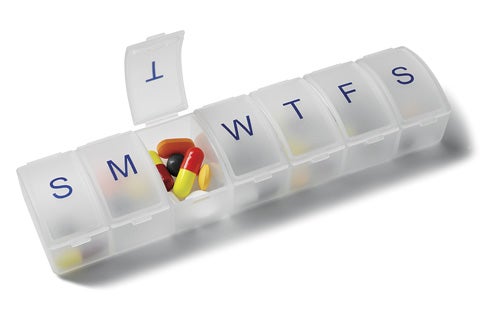Pharmacists Making House Calls
The days of doctors making house calls have gone, but thanks to a one-year $98,000 Center for the Technology and Aging grant, URI pharmacists are visiting patients recently discharged from hospitals to double check their medications. “The pharmacist can help avert problems,” said Pharmacy Professor Stephen Kogut, who oversees the grant. “Too many patients end up back in hospitals, especially elderly patients.”
The U.S. has an 18 percent rate of hospital readmissions within 30 days of discharge; as many as 76 percent of these readmissions are preventable, according to Medicare data. If these unnecessary readmissions were avoided, an estimated $25 billion could be saved annually.
Studies show that medication problems occur frequently after hospitalization, with about half of patients experiencing drug therapy duplication, drug interactions, or other types of medication problems after discharge.
Pharmacists can make sure that new medications prescribed in the hospital are compatible with the ones prescribed by the patient’s usual doctors and also review over-the-counter medications that the patient may be taking. Additionally, pharmacists are specifically trained to look for an important medication that may have been inadvertently omitted and would also know if a better formulation of a prescribed medication is available, Kogut said.

 Home
Home Browse
Browse Close
Close Events
Events Maps
Maps Email
Email Brightspace
Brightspace eCampus
eCampus


